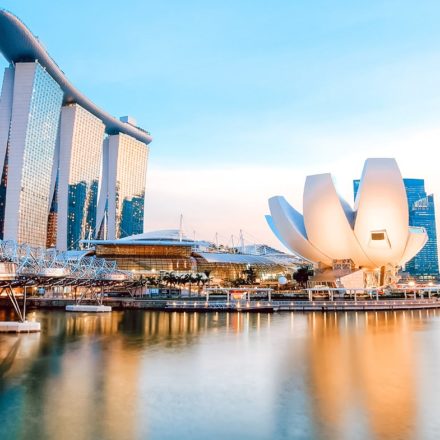In a judgment delivered on 7 October 2022, the Singapore High Court has refused to enforce a Pennsylvania, USA seated ICDR emergency arbitration award. The Court’s basis for not enforcing the emergency arbitration award was that the Defendant was not given an opportunity to present its case with respect to matters raised in the Claimant’s post-hearing submissions.
Despite the outcome in this case, importantly the Court confirmed that foreign emergency arbitration awards can be enforced in Singapore like any other foreign arbitration award under the Singapore International Arbitration Act. In doing so, the Court relied on a purposive interpretation of the Act – one which encourages the enforcement of arbitral awards in Singapore.
Factual and procedural background
The Defendant was the Claimant’s franchisee in Singapore. The Claimant alleged breach of the franchise agreements. The Defendant then purported to terminate the agreements for the Claimant’s breaches and / or anticipatory repudiation. The Claimant then commenced arbitration proceedings with the International Centre for Dispute Resolution (“ICDR”) and sought emergency relief.
An emergency arbitration then proceeded, with three weeks elapsing from the time of the Claimant’s application for an emergency arbitration award to the date of the emergency arbitrator granting the award (“Emergency Award”). The Emergency Award was issued by the arbitrator on 15 June 2022 with the Claimant filing an application to enforce the Emergency Award in Singapore a fortnight later on 29 June 2022.
Shortly afterwards, as is usual the Singapore Court granted the Claimant permission to enforce the Emergency Award in Singapore on an ex parte basis (“Enforcement Order”). The Defendant applied to set aside the Enforcement Order on a number of grounds.
Enforcement Order set aside because Emergency Award breached the rules of natural justice
The Court set aside the Enforcement Order because the Claimant raised a new case in its post-hearing submissions, and even then only in the alternative, which the Defendant was not able to address. The Court found that the Defendant had no reason to treat the Claimant’s new case as being part of the submission to arbitration until that point in time. However, the emergency arbitrator made the Emergency Award after the post-hearing submissions, without hearing any further submissions from the Defendant. The Defendant did not have any opportunity to resist the relief sought based on the Claimant’s new case. The Court found this sufficient to prejudice the Defendant.
To further solidify the argument that it was prejudiced, the Defendant adduced expert opinion that as a matter of Pennsylvania law (which governed the franchise agreements), the Claimant would not have been entitled to the relief it sought. Importantly, the Court found that the Defendant’s arguments, had it had the opportunity to present them, could have reasonably made a difference to the outcome in the Emergency Award.
Singapore’s pro-arbitration stance re-asserted, despite setting aside of the Enforcement Order
The above was not the only argument raised by the Defendant to pursue a setting aside of the Enforcement Order. The Defendant also argued that: (a) foreign emergency awards cannot be enforced in Singapore; (b) the award was not binding; (c) the Tribunal exceeded its jurisdiction; and (d) the award was infra petita, i.e. that the Tribunal failed to deal with essential issues submitted to it.
The Court rejected all of the above arguments. Of particular importance is the Court’s rejection of the first argument and finding that foreign emergency awards are enforceable in Singapore.
This issue, as to whether Singapore would enforce foreign emergency awards, has often been debated because the amendments made to the Singapore International Arbitration Act in 2012, which amended the definition of “arbitral tribunal” to include “an emergency arbitrator”, did not apply to Part 3 of the Act which deals with the enforcement of foreign arbitral awards.
As such, the Defendant took the stance that the legislative intent was for emergency awards to be excluded from Part 3 of the Act.
The Court rejected this submission. Instead, the Court considered that on a purposive interpretation, the term “arbitral award” in section 27(1) of the Act (i.e. within Part 3) includes awards by emergency arbitrators. In reaching this conclusion, the Court considered the legislative purpose of the statute, a Ministry of Law press release issued at the time of the 2012 amendments, and writings on the Act.
Key takeaways from CVG v CVH
- Clients can rest assured that emergency awards in foreign seated arbitrations, granted by foreign arbitral institutions, can be enforced in Singapore. This is a welcome decision, particularly given the lack of consensus in other jurisdictions. It is of importance to all those involved in arbitrations which will result in awards which may be enforced in Singapore.
- Parties should be alive to over-ambitiously trying to improve their cases in post-hearing submissions. The Claimant’s downfall in the present case arose from a substantial development of its case in post-hearing submissions, in a manner that changed the case’s nature, and which the Defendant did not have an opportunity to respond to. Parties would be well-advised to plead all of their claims in earlier claim documents, and where development of a case is necessary (as is often the case), to ensure that natural justice rules are adhered to and the other party has a chance to respond.









